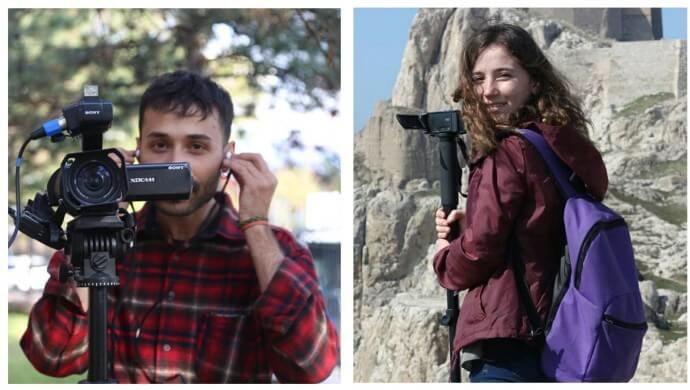Two journalists working for pro-Kurdish media outlets have been indicted for covering the funeral of Nagihan Akarsel, a Kurdish journalist, academic and women’s rights activist from Turkey who was killed in Iraq in October, the Mezopotamya news agency (MA) reported on Monday.
Akarsel, who was the editor of the Jineology magazine and a member of the Jineology Research Center, died in an attack in front of her house in Sulaymaniyah, a city in the Kurdistan region of Iraq, on Oct. 4.
Jineology — the science of women or women’s science — is a form of feminism, of gender equality, advocated by Abdullah Öcalan, the jailed leader of the outlawed Kurdistan Workers’ Party (PKK).
According to a report by MA on Monday, JinNews correspondent Dilan Babat and MA correspondent Fırat Can Arslan were briefly detained for covering Akarsel’s funeral in Konya’s Cihanbeyli district on Oct. 13.
An investigation was then launched into the journalists, and Konya prosecutor Şahsuvar Yıldız indicted them, referring to Akarsel as a member of a terrorist organization.
Yıldız claimed the reporters’ coverage of the funeral was “in line with the purpose and ideology of [a terrorist] organization” and “against the Turkish state and its institutions,” according to MA. He also said the journalists were aiming to turn the funeral into a mass action and that they were pointing to gendarmes seen during the live broadcast of the funeral as targets.
The indictment, seeking a jail sentence of up to three years for the journalists on charges of “identifying officials who took part in the fight against terrorism as targets,” was accepted by the Konya 2nd High Criminal Court, MA said, adding that the first hearing was scheduled to take place on May 25.
Kurdish journalists in Turkey frequently face legal harassment, stand trial and are given jail sentences for covering issues related to Kurds and the outlawed PKK, which has been waging a bloody campaign in Turkey’s southeast since 1984 and is listed as a terrorist organization by Turkey and much of the international community.
Rights groups routinely accuse Turkey of undermining media freedom by arresting journalists and shutting down critical media outlets, especially since President Recep Tayyip Erdoğan survived a failed coup in July 2016.
Turkey, which is one of the top jailers of journalists in the world, was ranked 149th among 180 countries in the Reporters Without Borders (RSF) 2022 World Press Freedom Index, released in May.

